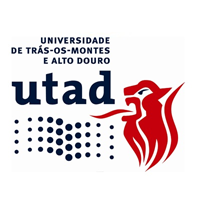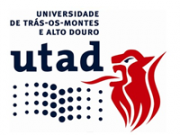Descrição
Idade Mínima: 0
Idade Máxima: 0
Situação:
Habilitações Mínimas:
Habilitações Específicas:
The aim of the Curricular Unit is to provide students with beginner competence in the Portuguese Language, becoming familiar with the main grammar issues and lexicology, thus being provided with the basic communication skills of this Latin-based language. Our main language instruction objective is establishing a language classroom context like real communication contexts. This aim is achieved by following closely the principles of accessibility, consistency, careful selection of teaching units, gradual transition from simple to more complex linguistic structures, as well as the application of the communicative situation as a means of acquiring the peculiarities of speech pragmatics. The learning process will be eased by real visits to the market, train/bus station, supermarkets, and cafés, where students will be encouraged to use their newly acquired knowledge and originate dialogues and ask questions to passers-by and tourist guides. Thus, they will learn how to elicit information from a real-life conversation. Foreign students will learn the basic Portuguese language structure, focusing on comprehension, speaking and writing skills. Interactive methods with communication purposes will be used – group work, brainstorming, games, as well as traditional pedagogic methods – discussion, individual work, work with a textbook, etc., which will contribute to the quicker learning of the language and the development of effective linguistic and communication competences of the students. Thus, communicative competence in this narrower sense has the following components: linguistic competencies; sociolinguistic and (inter) cultural competencies; and, whenever possible, pragmatic competencies.
CONTEÚDOS PROGRAMÁTICOS/PROGRAMMATIC CONTENTS
In summary, the main themes to be approached are: Greeting other people, answering greetings/saying goodbye, introducing oneself, family, nationality, calendar, weather, the time, shopping and making telephone calls, among others). A stimulating part of the education process will be the presentation of vocabulary used in typical everyday communication (internet chats, e-mails).
Sociolinguistic, Cultural and Communicational Competences:
Advise and give instructions
Agree / disagree
Apologize
Asking and telling the time (hours, minutes, etc.)
Asking prices
Book a hotel room
Compare countries and habits
Describe locations and people
Expressing preferences
Give information of personal description
Go shopping
Going to the doctor
Greeting
Invite/accept / deny
Localize
Making plans
Present himself/herself
Request in the cafe/restaurant and in other shops
Request information about places
Request items in shops
Saying goodbye
Speak of current events
Speak of free time activities
Speak of hobbies and vacations
Suggest
Talking about actions of everyday life
Talking about the weather
Write a letter
Lexical Areas / Vocabulary:
Actions of day-to-day
Address
Adjectives
At the Doctor
At the Post Office / in Bank / in Pharmacy
Cardinal Numbers (up to 20; up to 100; 101-1000)
Clothing
Colors
Countries / Cities / Towns / villages
Days of the week and months
Food and beverages
Furniture
Hobbies
Holiday Season
Holidays, leisure and hobbies
Hotel
Hours
House
Invitations
Jobs
Meals
Means of transport
Medical specialties and symptoms
Name
Nationalities
On the phone
Ordinal numbers
Parts of the day
Physical and psychological descriptions
Prices
Relationship Status
School
Seasons
The family
The menu
Weather
Grammar:
Phonetics: alphabet, vowels and consonants, diphthongs and other specific sounds of the Portuguese language
“Estar a” + Infinitive
Adjectives
Affirmative/negative / interrogative sentences
Comparatives and Superlatives
Definite and Indefinite articles
Demonstrative pronouns: “isto”/ “isso”/ “aquilo”
Expression “Como está? / Como estás?”
Expressions of time: “há”, “desde”, “sempre”, “nunca”, “às vezes”
Imperative
Indirect object pronouns
Interrogative pronouns and adverbs
Irregular verbs (present tense): “ser”, “estar”, “ter”, “haver”, “ir”,“poder”, “querer”, “saber”, “ver”, “ler”, “vir”, “fazer”, “dizer”, “trazer”, “sair”, “cair”, “pedir”, “ouvir”, “dormir”, “pôr”, “dar” and “doer”
Modal verbs: “Precisar de”, “ter de”, “dever”…
Personal pronouns – subject pronouns
Polite expressions: “Podia…?”, “Queria…”
Possessives
Preposition “com” + personal pronoun
Prepositional Expressions of place
Prepositions of time
Prepositions: “de”, “em”, “com”, “para”, “a”, “por”
Reflexive Verbs
Regular verbs (present tense) in -ar, -er and -ir
Verb “ir” + Infinitive
Students must attend at least 75% of the classes and obtain a minimum grade of 10, to obtain a certificate of competence at the end of the course.
The evaluation will be carried out in accordance with the provisions of the Common European Framework of Reference (CEFR) for level A1 and the UTAD Pedagogical Regulation, integrating the following components:
– Formative assessment (weekly) to assess and monitor the gradual progression of students.
– Periodic (formal) summative assessment, which includes the skills listed above and may take the form of tests (oral and written) and various records, among other factors considered relevant;
– Self-assessment questionnaires (during classes).
Any omission of the evaluation elements are at the discretion of the Course Teacher, who will carry them out whenever the syllabus or the group of students with whom he or she is working justifies it.
Assessment Certificate






